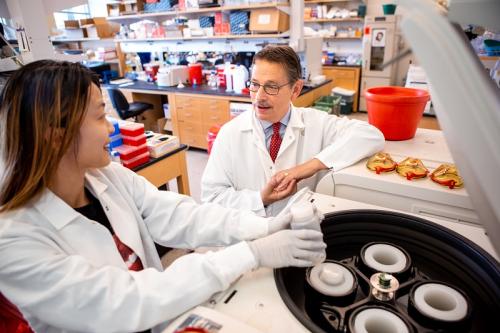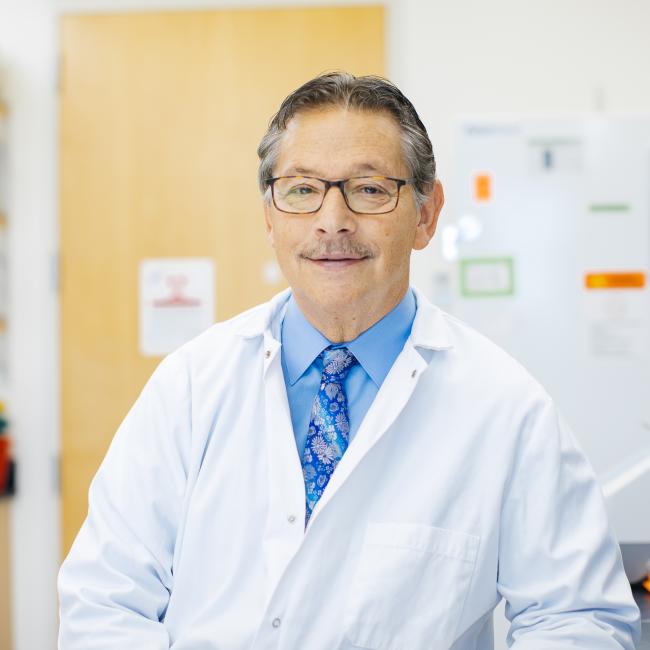
Donald Kohn receives $5.2 million CIRM grant to bring CRISPR therapy for pulmonary arterial hypertension to clinical trial
UCLA physician-scientist Dr. Donald Kohn has received a grant of $5.2 million from the California Institute for Regenerative Medicine to advance the development of a CRISPR gene editing therapy for pulmonary arterial hypertension towards clinical trial.
Pulmonary arterial hypertension is a rare, progressive condition characterized by high blood pressure in the arteries that lead from the heart to the lungs. To compensate, the heart must work harder to pump blood through the lungs, which causes strain that can eventually lead to heart failure.
There is no cure for this disease and not all patients respond to currently available medications that are intended to alleviate symptoms. Lung transplants are an option for patients with severe disease who do not see improvement from current therapies, but the risk of complications from these procedures is high.
The therapy Kohn is developing is intended to treat patients with a form of the disease known as systemic sclerosis-associated pulmonary arterial hypertension, or SSc-PAH. People with SSc-PAH have a 50% mortality rate within three years of diagnosis and generally tend to see little improvement from standard of care treatments.
The new therapeutic strategy uses CRISPR-Cas9 gene editing technology on patients’ own blood stem cells to disrupt the activity of a gene that produces a protein – both called MPO – that plays a key role in disease progression.
This project is a collaboration with LEMPO Therapeutics, a biotech developer of MPO-based treatments for autoimmune and rare diseases, and the lab of Dr. Stephan Rosenkranz, who serves as head of the Pulmonary Hypertension Center at the University of Cologne in Germany.
“We were contacted by the scientists at LEMPO about collaborating to apply our lab’s expertise in gene editing in blood stem cells to the target gene they identified for this disease,” said Kohn, a member of the Eli and Edythe Broad Center of Regenerative Medicine and Stem Cell Research at UCLA. “Project manager Zulema Romero led the development of a highly active CRISPR gene editing tool capable of targeting and disrupting the MPO gene.”
The grant, which was awarded Tuesday, will support Kohn and his collaborators’ efforts to complete the testing and manufacturing necessary to apply to the Food and Drug Administration for permission to start a phase 1 clinical trial in patients.
This therapeutic strategy is highly similar to that which is being used in a CIRM and NIH-funded clinical trial that aims to use CRISPR-Cas9 on patients’ blood stem cells to correct the genetic mutation that causes sickle cell disease. Kohn, along with principal investigator Dr. Mark Walters of UCSF and co-investigator Fyodor Urnov of the Innovative Genomics Institute, secured FDA permission to launch that trial in March 2021.
“Our approach to treat pulmonary arterial hypertension uses essentially the same cell processing methods as those used in the CRISPR trial for sickle cell disease,” said Kohn, who is also a distinguished professor of microbiology, immunology and molecular genetics in the UCLA College and of pediatrics and molecular and medical pharmacology at the David Geffen School of Medicine at UCLA. “This means most of the steps required to translate this approach to the clinic have already been completed and we have evidence that this treatment has the potential to change the lives of patients with this disease who currently have no options.”
